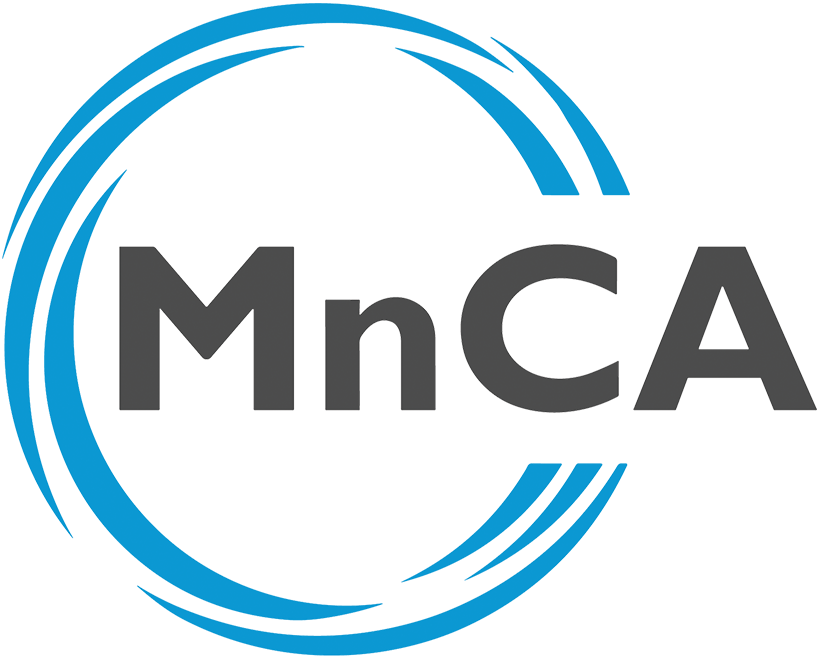ABOUT THE MINNESOTA COUNSELING ASSOCIATION
MnCA is Part of the ACA (The American Counseling Associaition)
The delegates comprised of 31 counseling organizations agreed upon a unified definition of counseling: "Professional counseling is a professional relationship that empowers diverse individuals, families, and groups to accomplish mental health, wellness, education, and career goals."
WHAT IS COUNSELING?
by MNCOUNSELING on FEBRUARY 19, 2015
Counseling and therapy services are dedicated to helping individuals, couples, families or groups who are:
Experiencing a current personal or relational crisis
Affected by one or more traumatic life experiences that influences optimal functioning
Experiencing a physical or mental illness and need help coping with it
Wishing to make repair and restoration in their relationships
Seeking better ways of operating or making choices/desiring personal growth
Needing to develop a greater resiliency to internal or external forces
Using effective methods and techniques, your therapist will guide you in looking at your personal history as well as current choices that will help you to identify better ways of coping or operating. Well-being is often based on your ability to maintain a sense of determination and counselors are here to help you achieve the goal of well-being…in a culturally and spiritually respectful manner.

Past Presidents of MnCA
2024: Hannah Daniels
2023: Gillian Koch
2022: Gillian Koch
2021: Angie Haag
2020: Angie Haag
2017: Rebecca Lund
2016: Helena Stevens
2015: Pete Bjoudak
2014: Katie Lewandowski
2013: Peg Truax
2012: Valerie Fitzgerald
2011: Don Cratchy
2010: Valerie Fitzgerald
2009: Blanca Svedberg
2008: Renae Ludwig
2007: Melissa Engstrom
2006: Max Hines/Leeann Jorgensen
2005: Lynette Sickler
2004: Marlae Cox Kolek
2003: Leeann Jorgensen
2002: Leeann Jorgensen
2001: Colin Ward
2000: Mary Fawcett
1999: Nick Ruiz
History of the Minnesota Counseling Association
by MNCOUNSELING on FEBRUARY 18, 2015
The Minnesota Personnel and Guidance Association was established in Minnesota in 1970, the articles of incorporation were amended in 1986-87 under the name of Minnesota Association for Counseling and Development and again in 2004 as Minnesota Counseling Association.
The organization originally intended to provide leadership for seven divisions: Minnesota Career Development Association, Minnesota Rehabilitation Counselors Association, Minnesota School Counselors Association, Minnesota Chemical Dependency Counselors, Minnesota Association for Counselor Education and Supervision, Minnesota Association for Specialists in Group Work, and Minnesota Association of Multicultural Development.
In the 1990s the Minnesota School Counselors Association and Minnesota Career Development Association started their own separate organizations which remain strong today. The other divisions stayed part of the Minnesota Counseling Association, though with the reorganization in 2003 were asked to submit financial reports to Minnesota Counseling Association for audit reports. None of the divisions submitted reports so the MnCA did not assume further responsibility for the divisions.
Nick Ruiz and Mary Leoni maintained a small organization for a number of years with the help of Judy Ayers, then in 2002 President Leeann Jorgensen obtained a $15,000 organization redevelopment grant from Bremer Foundation to revive the organization. Maggie Glazer was hired as a graduate assistant and worked to rebuild the membership and recording procedures. The organization membership grew from 50 to 400 as the MnCA worked to obtain licensure in 2005. In 2002 the following grants were received: $20,000 from NBCC, $5,000 from ACA, and $5,000 from the Midwest Region of ACA for legislative action. In 2003 MnCA won the ACA Outstanding Chapter Award.
Prior to 2004, Master’s level counselors in Minnesota were able to obtain two kinds of licenses: the Licensed Psychological Professional (LPP) and the Licensed Psychologist (LP). Since then, the LPP has been phased out and the LP is now awarded only to doctoral level candidates.
The Board of Behavioral Health and Therapy was created during the 2003 Legislative Session. The first Board members were appointed in December 2003 and began their duties at their inaugural Board meeting of December 4, 2003. The mission of the Board of Behavioral Health and Therapy is to protect the public through effective licensure and enforcement of the statutes and rules governing its licensees to ensure a standard of competent and ethical practice.
In 2004, the BBHT started licensing Licensed Professional Counselors (LPCs). LPCs are master’s level professionals who are required to complete an internship and coursework on human behavior and development, effective counseling strategies, ethical practice, and other core knowledge areas. After graduation, LPCs complete a minimum of 2,000 hours of supervised clinical experience. In 2004, many Master level counselors fit under the “allied” field according to the Department of Human Services. Some could obtain reimbursement due to experience and supervision and others could not.
In 2005, a Mental Health Task Force was created to establish the qualifications and standards which all mental health professionals should maintain. All mental health professionals in Minnesota were represented in this task force as well as educational programs, boards and associations of each mental health profession. The Licensed Professional Clinical Counselor (LPCC) level of licensure based its standards on the recommendations of the Mental Health Task Force. All mental health professionals in Minnesota will need to meet these standards by 2011.
The Mental Health Task Force also recommended that the LPCC level of licensure be included as a Mental Health Professional by the DHS. However, attempts to do this were not successful until 2009. Legislators stated that it failed because a fiscal impact survey found that adding LPCCs as a Medicaid mental health provider would have a fiscal impact. In 2009, a year with a large deficit and many spending cuts, funding was found to include LPCCs as mental health professionals.
As of January, 2010, LPCCs are recognized as Mental Health Professionals by the Department of Human Services (DHS). This means that, like other master’s level professionals such as LICSWs and LMFTs, counselors can obtain a provider number from the DHS and bill to Medicaid. Obviously, this did not happen overnight. Counselors, legislators and members of MnCA worked for many years, first to create the license and then to achieve recognition as mental health professionals.
